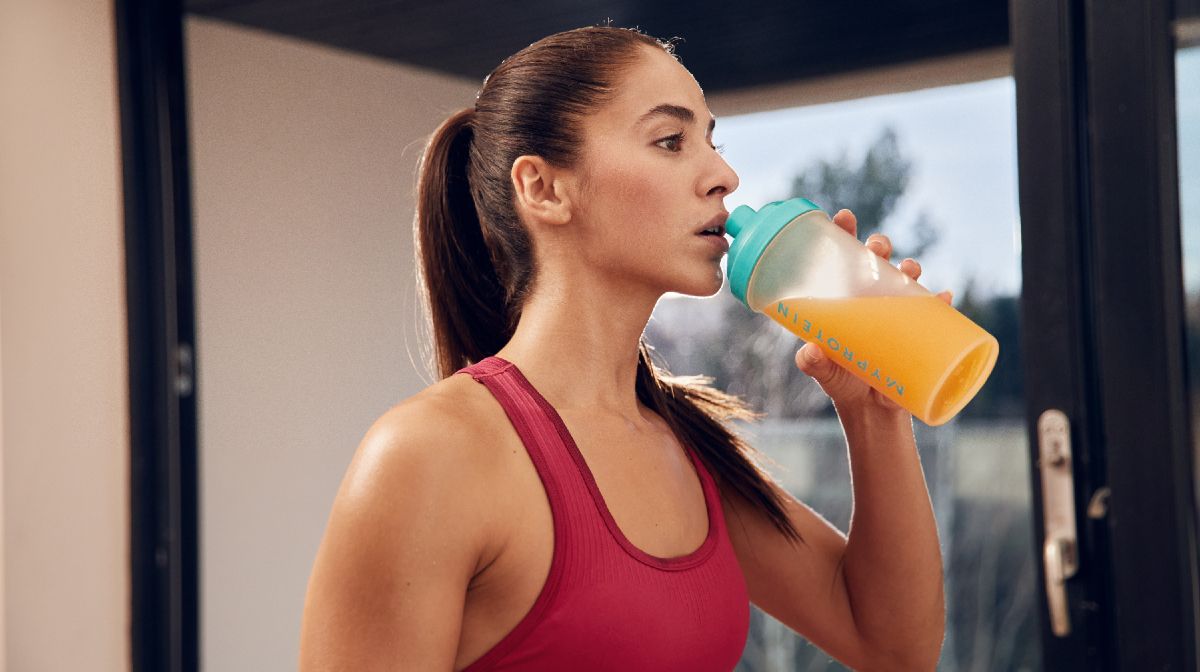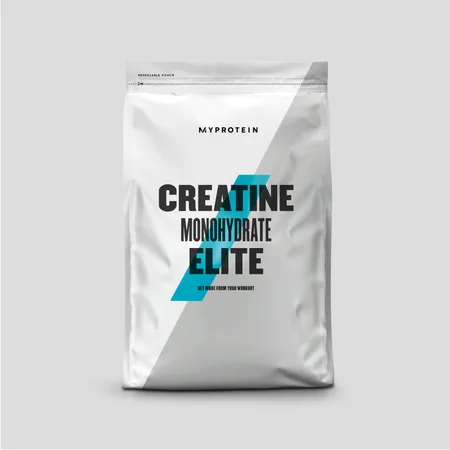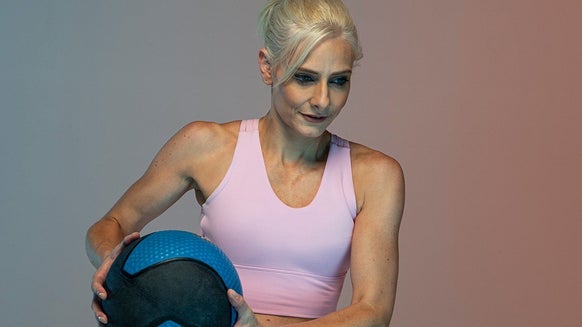Does Creatine Cause Weight Gain? | Your Questions Answered

Creatine is a popular supplement used by athletes and gym goers with tonnes of evidence back it as one of the most effective supplements for improving strength, speed and muscle mass.1 However, one of the most prevalent side effects of creatine is weight gain.2 But this isn't necessarily a bad thing, or the kind of weight gain you might be thinking of.
- What is creatine?
- How does creatine work?
- Does creatine make you fat?
- Does creatine help build lean muscle?

What is creatine?
Creatine is naturally occurring compound found in foods like red meat, poultry and sea food.
An average 70kg male will typically store approximately 120g of creatine in their body. With supplementation it’s possible to increase this storage around 160g.1When your creatine storage is maximised, this is when you'll see the performance enhancing effects of increased strength, power, muscle mass and improved recovery.1
How does creatine work?
Supplementing creatine increases the amount of phosphocreatine (PCr) storage within the muscle cell which acts as an energy source during high intensity exercise such as weight lifting. Essentially, increasing your phosphocreatine storage will allow you hit more reps and recover better between sets, which in time, leads to increased gains in muscle mass.
In order for your body to produce phosphocreatine in skeletal muscle, creatine must enter the muscle cell via the bloodstream.3 As creatine enters the muscle cell it may draw water into the cell resulting in water retention and weight gain.4
Does creatine make you fat?
In short term studies, the evidence shows that creatine will increase body mass, especially if following a loading protocol.4 This will most likely be due to
In the long term, there will likely be a weight gain due to increased lean muscle mass.1 Maximal creatine store will increase exercise capacity (sets and reps) and improve recovery leading to improved training quality which will ultimately lead to an increase in lean muscle mass, which is definitely a good thing!
Does creatine help build lean muscle?
In the short-term, the weight gained during creatine supplementation will not be lean muscle but water retention in the muscle cell. The training adaptations occur once your body’s creatine storage have been maximised. Essentially, full creatine stores will allow you to hit more reps and recover quicker, leading to long term gains in lean muscle mass.
Teamed up with resistance training, those supplementing creatine
It has also been suggested that the swelling of the muscle cell caused by water retention can actually be one of the ways in which creatine increases lean muscle mass. The theory is that the swelling of the muscle cell acts as a trigger which sets off a cascade of metabolic reactions resulting in an increase of muscle protein synthesis.6
Not sure when you should be taking creatine? Find out here...

When Should You Take Creatine?
Find out how and when you need to be taking this supplement.
Take Home Message
In the short term, creatine supplementation may increase total body weight. This is most likely due to water retention in the muscle rather than an increase in muscle or fat mass. Long term creatine alongside resistance training can lead to greater lean muscle mass gains due to increased training volume and recovery.
READ THESE NEXT:

How To Take Creatine | Best Uses For Your Fitness Goals
All your must-know creatine knowledge and which you should be taking.

When Should You Take Creatine?
Find out how and when you need to be taking this supplement.

Nailing Your Return To Gym Supplement Routine
Make the most of those first sessions back.

Liam is a certified sport nutritionist with the International Society of Sport Nutrition and is enrolled on the British Dietetics Association’s Sport and Exercise Nutrition register. He has a Bachelor’s of Science in Sport and Exercise Science and is graduate of the ISSN Diploma in Applied Sport and Exercise Nutrition.
Liam is an experienced personal trainer, helping clients reach their health and fitness goals with practical, evidence informed exercise and nutrition advice. In his spare time Liam has competed in numerous powerlifting competitions and enjoys hill walking, football and expanding his recipe repertoire in the kitchen.Find out more about Liam's experience here.
- Buford, T.W., Kreider, R.B., Stout, J.R. et al. International Society of Sports Nutrition position stand: creatine supplementation and exercise. J Int Soc Sports Nutr 4, 6 (2007). https://doi.org/10.1186/1550-2783-4-6
- Kreider, R.B., Kalman, D.S., Antonio, J. et al. International Society of Sports Nutrition position stand: safety and efficacy of creatine supplementation in exercise, sport, and medicine. J Int Soc Sports Nutr 14, 18 (2017).
- Guimarães-Ferreira L. Role of the phosphocreatine system on energetic homeostasis in skeletal and cardiac muscles. Einstein (Sao Paulo). 2014;12(1):126-131. doi:10.1590/s1679-45082014rb2741
- Powers ME, Arnold BL, Weltman AL, et al. Creatine Supplementation Increases Total Body Water Without Altering Fluid Distribution. J Athl Train. 2003;38(1):44-50.
- Antonio, J., Candow, D.G., Forbes, S.C. et al. Common questions and misconceptions about creatine supplementation: what does the scientific evidence really show?. J Int Soc Sports Nutr 18, 13 (2021). https://doi.org/10.1186/s12970-021-00412-w
- Kreider RB. Effects of creatine supplementation on performance and training adaptations. Mol Cell Biochem. 2003 Feb;244(1-2):89-94. PMID: 12701815.






